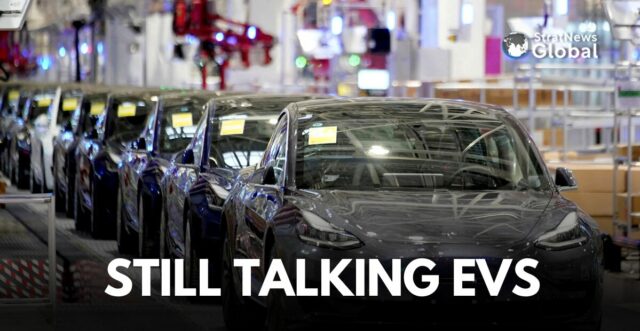The European Commission is willing to continue negotiating with China a potential deal to avert tariffs on Chinese electric vehicles even after such tariffs are imposed, a senior EU official said on Monday.
The Commission, which is conducting an anti-subsidy investigation into EVs made in China, has sent its proposal for final tariffs on such vehicles to the EU’s 27 members advocating levels that it calculated in September, three sources familiar with the matter said. It has set the vote for Friday.
At the same time, it included an additional text called a recital stating that talks so far with China had not resolved the dispute over alleged Chinese subsidies, but that negotiations on a possible compromise could continue even if EU countries agree to the tariff rates.
Re-examining Pricing
The Commission has said it could re-examine a price undertaking – involving a minimum import price and typically a volume cap – having previously rejected those offered by Chinese companies.
Commission director-general in charge of trade defence Martin Lucas told the European Parliament on Monday that technical talks with China had intensified to an almost daily basis and could extend beyond the end of October.
“The conclusion of the investigation is not necessarily the end of consultations with China on finding a solution. The investigation has its own legal deadlines and we cannot miss them. Definite measures need to be in place by Oct. 31,” Lucas said.
“Price undertakings or any other solutions can still be accepted after that date,” he added.
Revised Offers
Chinese automakers had submitted revised offers that were still not acceptable, he continued, although some progress has since been made.
The proposed tariffs vary from 7.8% for Tesla EVs built in China to 35.3% for those of SAIC and other companies deemed not to have cooperated with the Commission’s investigation. They are on top of the EU’s standard 10% car import duty.
EU members are due to vote on Friday on whether to back final or “definitive” tariffs for the next five years. They would be imposed unless a qualified majority of 15 EU countries representing 65% of the EU’s population voted against.
A decision, which may require a second round of voting, has to be taken by Oct. 30.
If definitive tariffs are imposed, it would mean that provisional duties dating back to July would also have to be paid. Until the end of the EU investigation, companies can cover these with a bank guarantee.





